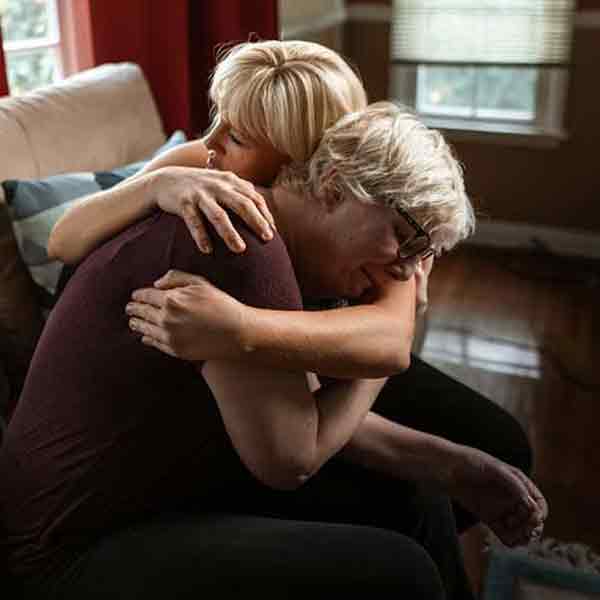Grief Counselling
Are You Struggling to Cope With a Loss?
Grief can arise from any major loss or life transition—the death of a loved one, the end of a meaningful friendship, the loss of a job, the passing of a beloved pet, or even moving away from a cherished community. Regardless of the cause, grief can feel incredibly isolating, leaving you with the sense that no one truly understands what you’re going through.
Recognize the Symptoms of Grief
- Depression and despair
- Feeling emotionless and numb
- Withdrawal from others
- Panic attacks or anxiety
- Anger and hostility
- Feelings of guilt or betrayal
- Difficulty concentrating
- Changes in sleep cycle
- Drastic change in religious views
- Weight loss or gain, changes in appetite
- Lack of ability to function at a basic level
- Post-traumatic stress / flashbacks

We Can Help Through Bereavement Therapy
In-person and online counselling are available.
Grief is a Normal Response to Loss
Grief is a natural and universal part of the human experience. While it often follows the loss of someone or something deeply meaningful, it can still feel anything but “normal” in the moment. You may question your emotions, feel pressured to “get over it,” or worry that your pain isn’t justified. Well-meaning friends or family might even urge you to move on before you’re ready.
But grief isn’t something you can rush or simply will away. It’s a personal journey—one that allows you to honor what you’ve lost and begin to heal. Taking the time to grieve isn’t just okay—it’s a necessary and healthy response to loss. Your feelings are valid, and healing needs to come at your own pace.
However, when grief remains unprocessed for an extended period, it can begin to surface in ways that may be harmful or self-destructive. Unresolved grief may lead to behaviors such as substance use, compulsive shopping, chronic depression, or other forms of escapism that provide temporary relief but ultimately mask the underlying pain.
Recognizing when grief feels overwhelming or unmanageable is an important step. Seeking help early can make a significant difference in your healing process, offering support, clarity, and healthier ways to cope.

A Clear Path Counsellor Can Help You Transition Through Your Grief
Everyone experiences grief differently, and therapy can provide a safe, supportive space to make sense of your loss and navigate this challenging time. At your own pace, we’ll help you process your grief while also supporting you in managing other areas of your life that may be affected.
Grief is often misunderstood as something to “get over,” but in reality, it’s a lifelong process of learning to live with loss and the emotions that come with it. In therapy, you and your therapist will work together to reduce suffering, foster acceptance, and gently integrate the loss into your life.
You don’t need to “stay strong,” follow a timeline, or go through this alone—healing begins with support and understanding.
Our Grief Counsellors
Our grief counsellors, Jason McKinlay and Denise Turner, both have experience in dealing with grief and the difficulties of bereavement. Each has a unique therapeutic approach to helping you work through your traumatic loss.
Denise Turner
“Through a trauma-aware, somatic coaching approach, I will guide clients to rebuild self-trust, reconnect with who they are now, and move forward with clarity and confidence.”
“Our work will honour your whole self—mind, body, and spirit.”
Jason McKinlay
“I have specialized training in both normative and complex grief, helping individuals navigate the natural process of loss as well as the more complicated experiences that can feel overwhelming or prolonged. Whether you’re grieving the death of a loved one, a pet, or a major life change, I offer a safe and compassionate space to process your pain, honour your loss, and begin to adjust to a new sense of normal.
